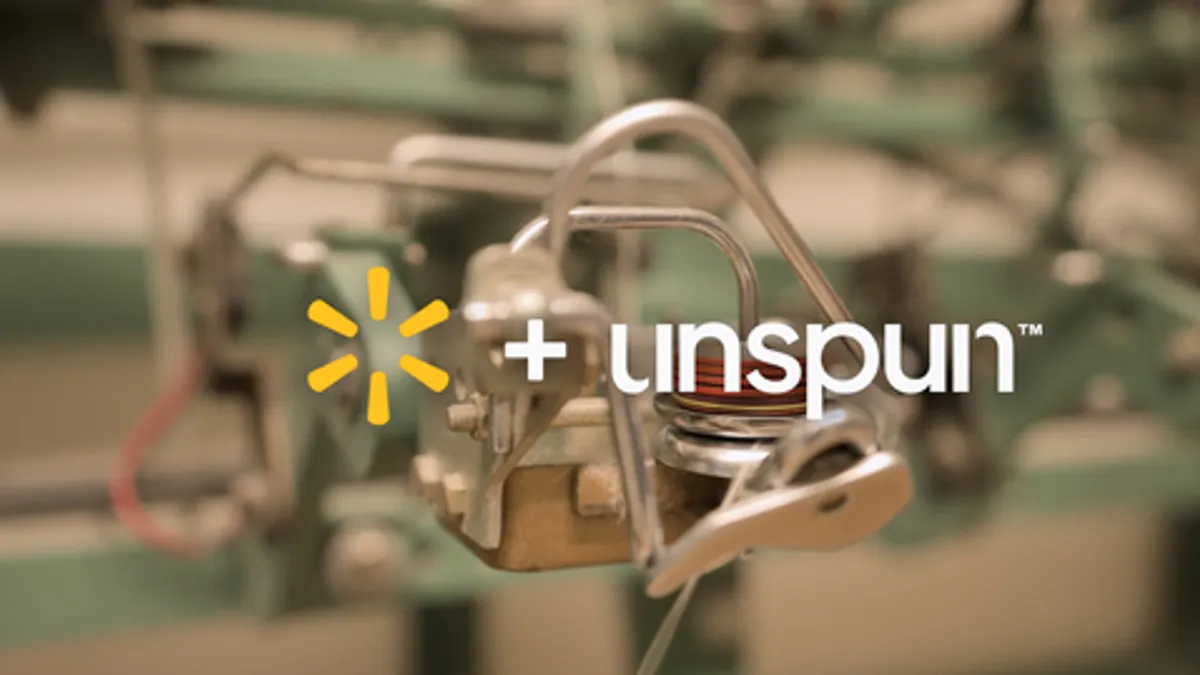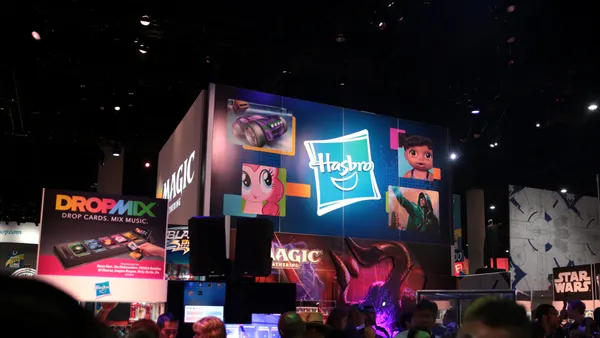Dive Brief:
- Walmart announced a pilot project on Thursday with Unspun, a fashion tech company, to test its 3D weaving machines to make workwear style pants for the retailer’s house brand.
- With 3D weaving machines, yarn is spun directly into completed garments. From its micro factory in Oakland, California, Unspun’s tech aims to reduce the environmental impact of garment production.
- If the partnership is deemed successful, it would support the companies’ shared mission to shift more textile manufacturing back to the U.S., decrease the environmental impacts of making clothes and serve as a sustainable process in meeting demand.
Dive Insight:
Because the traditional garment production comes with fabric loss and discarded extra inventory coupled with emissions from transporting clothing and materials offshore, the demand for sustainable apparel manufacturing solutions is prevalent, per the two companies.
The pilot between Walmart and Unspun addresses waste concerns in the apparel industry, according to the companies. Usually yarn is woven into fabrics, which are then cut and assembled into garments. With 3D weaving, yarn is more quickly and efficiently transformed into completed garments.
“At Walmart, we are laser-focused on bringing innovation to our supply chain to better serve our customers and solve industry challenges, and Unspun has the potential to do just that,” Andrea Albright, executive vice president of sourcing at Walmart, said in a statement. “The technology we are piloting with Unspun has the potential to unlock more skilled job creation in the U.S., meet consumer demand for locally made garments and deliver on our commitment for greater transparency and sustainability in our apparel supply chain.”
Walmart and Unspun plan to extend their collaboration if the pilot succeeds. With the help of a manufacturing partner, Unspun’s goal is to add more microsites around the U.S. for on- and near-shored manufacturing. Unspun is aiming for 350 machines in the country by 2030.
Walmart has been pursuing other avenues of sustainability outside of manufacturing, including a goal to be powered 50% by renewable energy by 2025 and 100% by 2035. The company last month hit its supplier emissions goal six years early, getting rid of 1 billion metric tons of greenhouse gasses from its supply chain.
Walmart’s focus on tech has been displayed in many of its operations and recent announcements, especially where it meets consumers. With artificial intelligence and augmented reality, the company has introduced virtual eyewear fittings, its Be Your Own Model virtual try-on function and a spatial tool to help customers design rooms and explore items before they buy, among other efforts.















